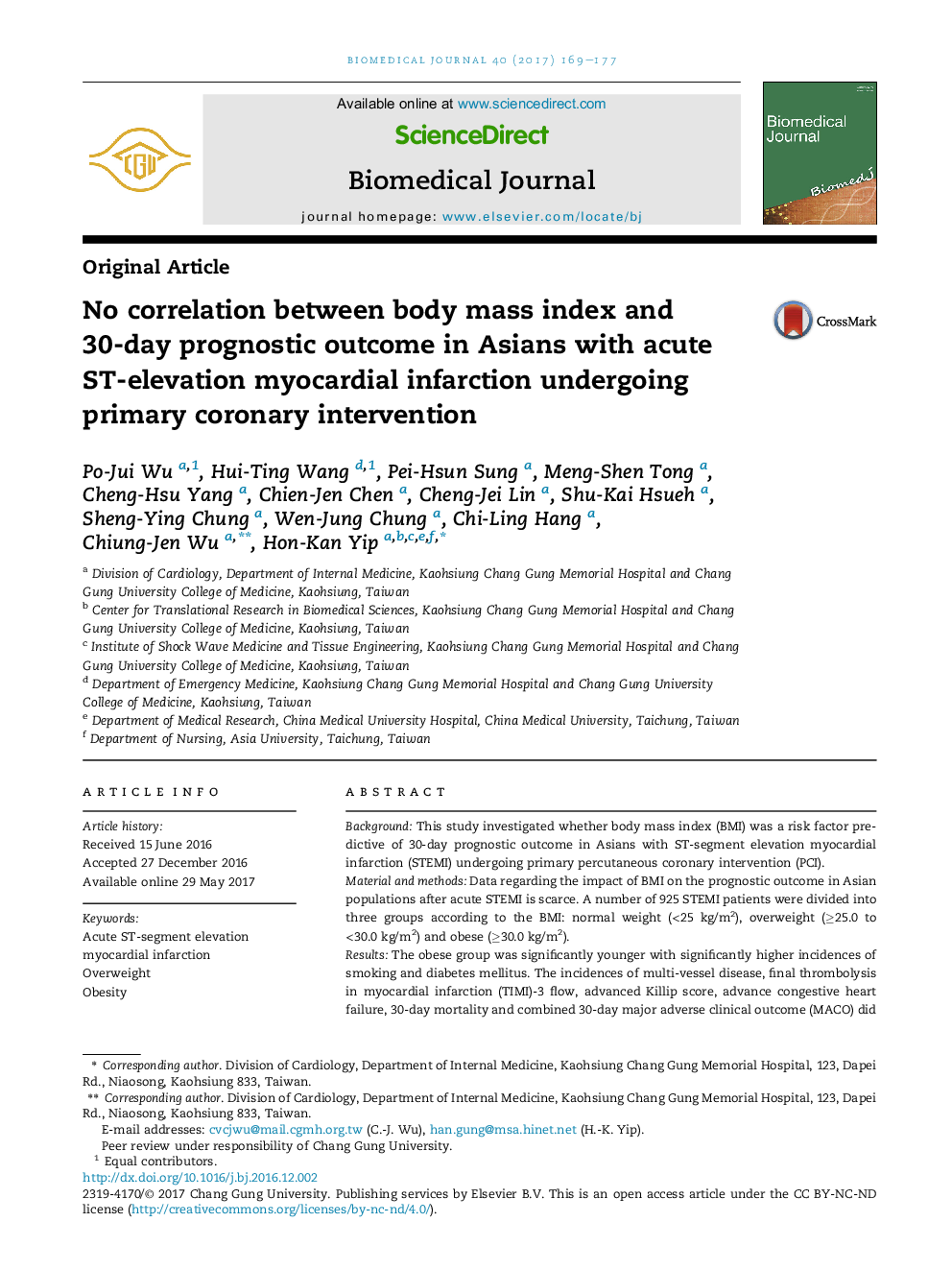| Article ID | Journal | Published Year | Pages | File Type |
|---|---|---|---|---|
| 5524589 | Biomedical Journal | 2017 | 9 Pages |
BackgroundThis study investigated whether body mass index (BMI) was a risk factor predictive of 30-day prognostic outcome in Asians with ST-segment elevation myocardial infarction (STEMI) undergoing primary percutaneous coronary intervention (PCI).Material and methodsData regarding the impact of BMI on the prognostic outcome in Asian populations after acute STEMI is scarce. A number of 925 STEMI patients were divided into three groups according to the BMI: normal weight (<25 kg/m2), overweight (â¥25.0 to <30.0 kg/m2) and obese (â¥30.0 kg/m2).ResultsThe obese group was significantly younger with significantly higher incidences of smoking and diabetes mellitus. The incidences of multi-vessel disease, final thrombolysis in myocardial infarction (TIMI)-3 flow, advanced Killip score, advance congestive heart failure, 30-day mortality and combined 30-day major adverse clinical outcome (MACO) did not differ among the three groups. Multiple regression analysis showed the age, unsuccessful reperfusion and lower left ventricular ejection fraction were most significant and independent predictor of 30-day mortality.ConclusionBMI is not a predictor of 30-day prognostic outcome in Asians with STEMI undergoing primary PCI.
